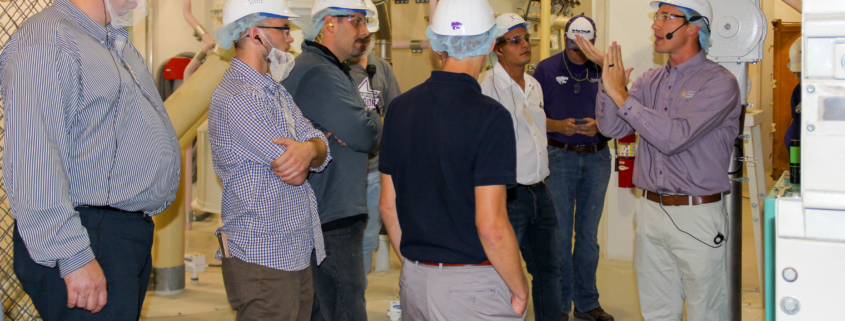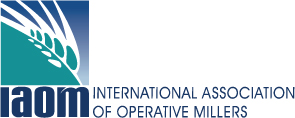
Course Description
The objectives of this course are to gain a general understanding of the principles of the milling process from wheat receiving to finished product distribution, understanding the relationship between wheat quality and the effect of the milling process, gain knowledge of different wheat types and what products each can produce, gain knowledge of flour functionality and baking performance of different flours, and learn the role each department plays in the success of the milling industry. Participants will discuss all aspects of the flour milling process from wheat selection to milling to flour blending and baking functionality.
Topics for the course include an overview of the U.S. milling industry; wheat production, supply and demand; wheat classes, uses, and basic wheat chemistry; wheat cleaning and conditioning; gradual reduction process overview; milling math (extraction, tempering and blending); principles of mill flow sheets; overview of the general milling process and major milling equipment; flour and dough testing practices and methods; flour functionality; wheat and flour blending; grade, quality, and mill performance on flour extraction; and practical hands-on experience in the Hal Ross flour mill and KSU benchtop milling and baking laboratories (see commercial mill in action and understand what equipment does and simple adjustments, breaks, purifiers, sizings, reduction rolls, sifting, flour stream analysis, sample board analysis, benchtop wheat milling exercise, baking with different flours exercise).
Who Should Attend
New mill employees, mill HR staff and managers, grain and ingredient procurement managers, feed and flour sales representatives, production schedulers, warehousing and QA personnel, R&D staff, wheat breeders, grain inspection personnel, food program administrators, international wheat/grain traders, journalists, extension agents, wheat commission staff/board members, and agricultural and business economic analysts. No milling experience or theory required.
Registration Information
This course will be offered February 5-9 and August 5-9, 2024. The course fee for IAOM members is $1,900, and the non-member fee is $2,000



